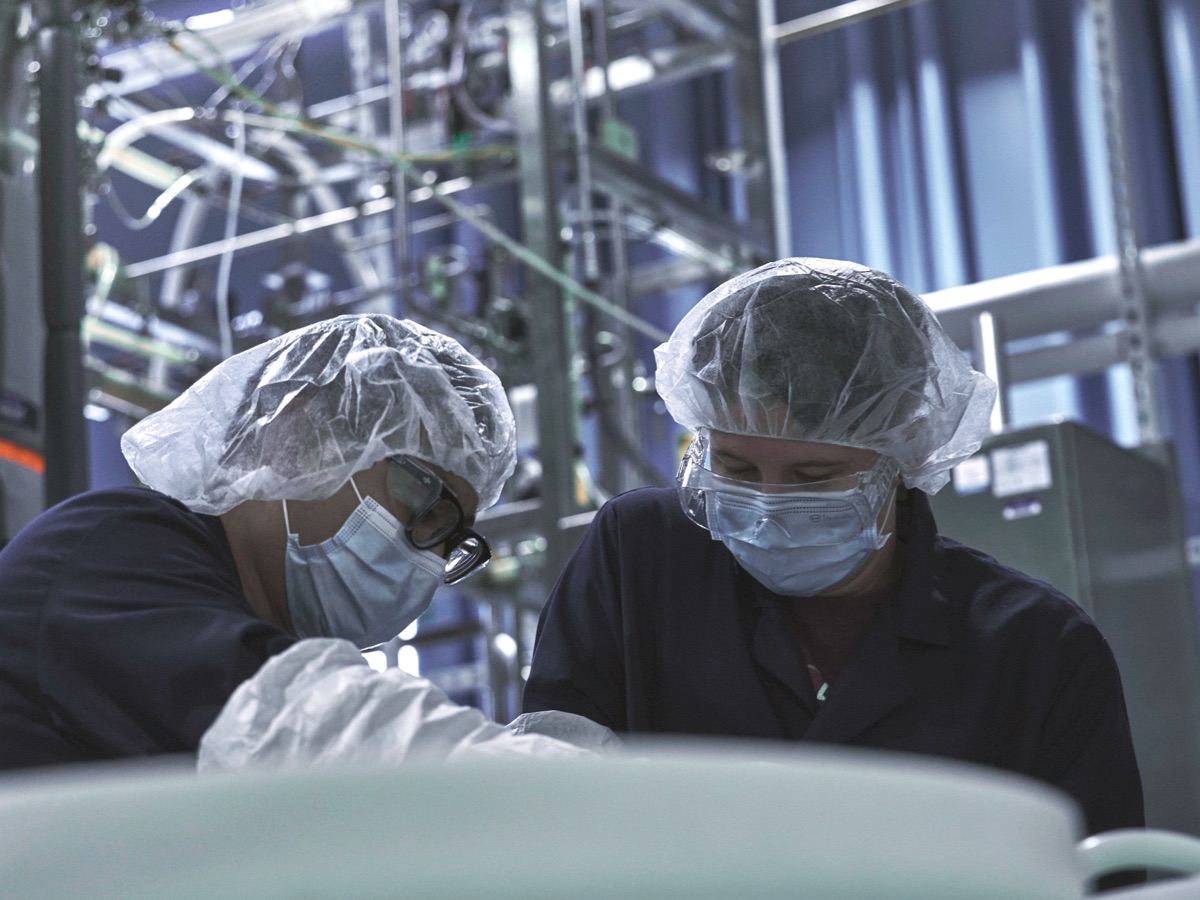
Disability Pride Month: Removing Barriers and Amplifying Voices
learn more
Reaching full-scale production at the target price, quality, and timeline.

It’s no secret that one of the biggest challenges biotech companies face is mastering the jump from lab-scale development to full-scale manufacturing. Reaching full-scale production at the target price, quality, and timeline is a stumbling block all too common to the biotech industry and, in many cases, has meant that potentially world-changing products are never fully realized, even after years of R&D.
But after a decade of bringing fermentation-derived products to market, Amyris has been one of few exceptions to this trend—we’ve commercialized ten different fermentation products and have brought even more final products to market, learning several important lessons along the way.
Achieving full-scale manufacturing is challenging for several reasons, but the primary hurdle is that it’s incredibly difficult to test a full-scale environment in a lab setting. For context, lab-scale fermentation is typically executed at 0.25-2.0L, while manufacturing-scale operations are completed in 50,000-300,000L fermentation vessels—as you can see, the jump is significant. Oftentimes, the strain development and process development teams are distributed across several companies and locations, which can result in silos and a patchwork experience. Many biotech companies also don’t have their own manufacturing facilities—particularly common for early-stage businesses—so are reliant on CMOs (contract manufacturing organizations) and don’t have a tech transfer or troubleshooting plan solidified.
With a world-class, highly integrated team of scientists and engineers, we’ve successfully performed fermentation, purification, and/or chemical synthesis manufacturing at 17 different manufacturing sites across three continents. As a result, we’ve developed a deep expertise and best practices for the science, engineering, and technology transfer systems to ensure a successful scale-up experience. Here’s what we’ve found to be key in both developing the processes and realizing their potential at commercial scale:
While moving from lab to full-scale manufacturing is a significant challenge, it’s not insurmountable. For us, the next technical frontier we’re tackling is developing new process development approaches to match the pace and scope of our accelerated strain development. We believe this will be key to bringing even more products to market and unlocking myriad solutions to urgent global problems ranging from low-cost pharmaceutical treatments to food access to sustainability.
Read the full paper written by leaders from the Amyris R&D, Process Development, and Manufacturing support team: “Clean manufacturing powered by biology: how Amyris has deployed technology and aims to do it better.”